The Vineyard Gazette today announced new publishers for the newspaper in changes that take effect immediately.
Richard Reston, presently editor in chief of the newspaper, assumes The position and added responsibilities of editor and publisher of the Vineyard Gazette.
Mary Jo Reston, now the newspaper’s general manager, moves up to the role of publisher and general manager, with full responsibility for the financial affairs of the Gazette.
The new publishers will divide their duties between the editorial and business sides of the Vineyard Gazette. They will share joint authority for all newspaper operations and policy,.
Announcement of the leadership changes ad the Gazette came from James B. Reston and Sally Fulton Reston, publishers of the newspaper for the last 20 years, form 1968 to present. Mr. and Mrs. Reston will remain active on the corporate side of the Vineyard Gazette, serving in a new role as joint chairmen of the newspaper’s board of directors. They will retain their current board titles as president and treasurer of the newspaper corporation. Mr. Reston, long a columnist and executive of the New York Times, is now writing his memoirs.
Richard Reston will continue as vice president of the board. Mary Jo (Jody) Reston now serves as clerk to the board of directors and that position remains unchanged.
The transition to new publishers at the newspaper marks only the eighth such change in the 143-year history of the Vineyard Gazette. The paper was founded May 14, 1846 and has continued in unbroken publication as the Island’s community newspaper since then. Mr. Reston is the newspaper’s seventh editor in chief.
He took over editorial control and direction of the Vineyard Gazette following his arrival on the Vineyard in the autumn of 1975. Mr. Reston was born in London, England and grew up in Washington, D.C. He was educated at the University of North Carolina in Chapel Hill, the University of Edinburgh in Scotland, the Sorbonne in Paris and was graduated from the University of Wisconsin with a degree in political science and international affairs.
Mr. Reston began his newspaper career as a staff writer for the Capitol Times in Madison, Wis. and later as the newspaper’s Washington correspondent. He spent a year as a reporter in the Boston bureau of the United Press International before moving to the nation’s capital as Washington correspondent and bureau chief for the San Francisco Chronicle. While with the Chronicle in the early 1960s Mr. Reston spent much of his time in the Deep South covering the civil rights movement and riots surrounding the freedom marches of the late Martin Luther King.
In late 1963 Mr. Reston was named diplomatic correspondent of the Los Angeles Times Washington bureau, with responsibility for coverage at the State Department and White House. In that period he spent the better part of a year reporting the fighting and political turmoil in the Dominican Republic after President Lyndon B. Johnson ordered intervention of the U.S. Marines.
In 1966 Mr. Reston was assigned to the Soviet Union as chief Moscow correspondent and bureau chief for the Los Angeles Times. He spent four years in the Soviet Union at the height of strained relations between Moscow and Washington over the war in Viet Nam, during the Soviet invasion of Czechoslovakia and in a time of bitter clashes between the Russians and the Chinese over the disputed Sino-Soviet border. His assignments also took him to Warsaw Pact countries in the Soviet satellite network of nations in Eastern Europe.
Out of his years and experience in Moscow Mr. Reston wrote a book entitled Aftermath to Revolution about the collectivization of Soviet society. Mrs. Reston did much of the research for the book.
In the early 1970s Mr. Reston was assigned to London as chief correspondent for the Los Angeles Times. He spent a great deal of time there on assignment to the War in Northern Ireland.
Mr. Reston was one of the first American correspondents to enter mainland China before that country opened to the West. He was in China on writing assignment for nearly two months just before President Richard Nixon made his triumphal visit to Peking in 1972.
Mr. Reston returned to Washington as diplomatic and White House correspondent for the Times during the first months of the Watergate scandal in 1972. His chief responsibility in the years the followed was coverage of Henry Kissinger, then Secretary of State. He traveled extensively with Mr. Kissinger during the years of intense shuttle diplomacy and crisis in the Middle East.
And in the final months and weeks of the Watergate scandal Mr. Reston was shifted to the White House to cover the last days of the downfall of President Nixon. He was part of the White House press corps that followed Mr. Nixon on his final trips abroad before his fall from power in 1975.
It was late in that same year that the new publishers of the Vineyard Gazette came to the Island to run the community newspaper. Circulation of the Gazette at that time was about 7,500; it is now approaching 18,000, with subscribers in every state of the union and 26 countries overseas.
Mary Jo Reston was born in Kenosha, Wis. and grew up in that state, mainly in the town of Delavan. She was educated at the University of Wisconsin where she graduated with a degree in English and speech. She taught for two years before moving to the nation’s capital where she worked for the Republican National Committee.
She later directed the department handling the federal government program for Blue Cross and Blue Shield. Mrs. Reston has done some writing for newspapers and has worked in journalistic circles for many years, especially while living overseas.
Since 1975 Mrs. Reston has presided over the financial affairs of the Vineyard Gazette and has played a central management role in the growth and many changes at the newspaper during the past 13 years.
She has served many years on the board of directors of the Martha’s Vineyard Hospital and is now a vice chairman of the Island hospital board.

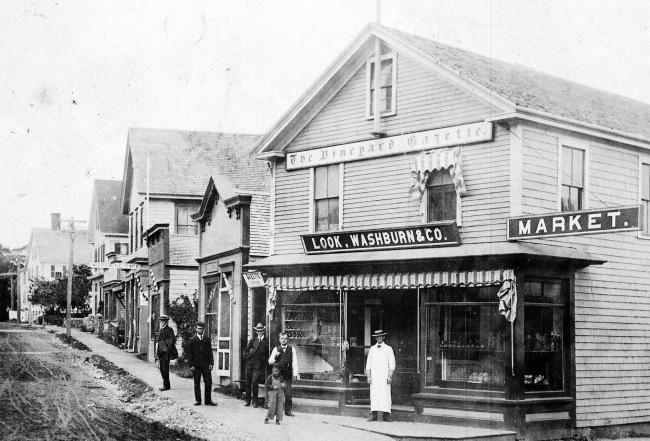




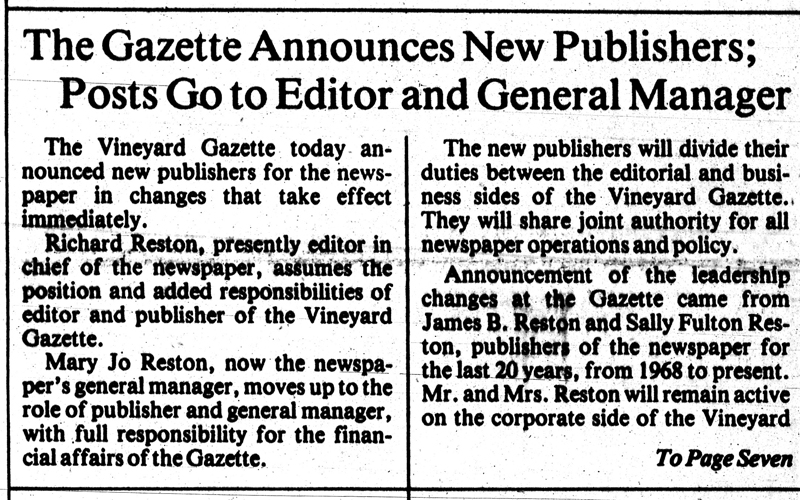


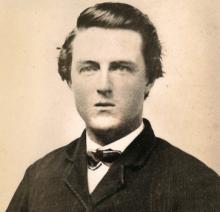
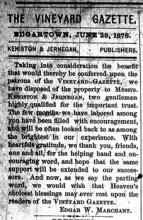
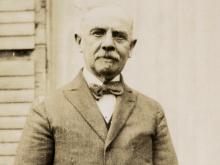
Comments